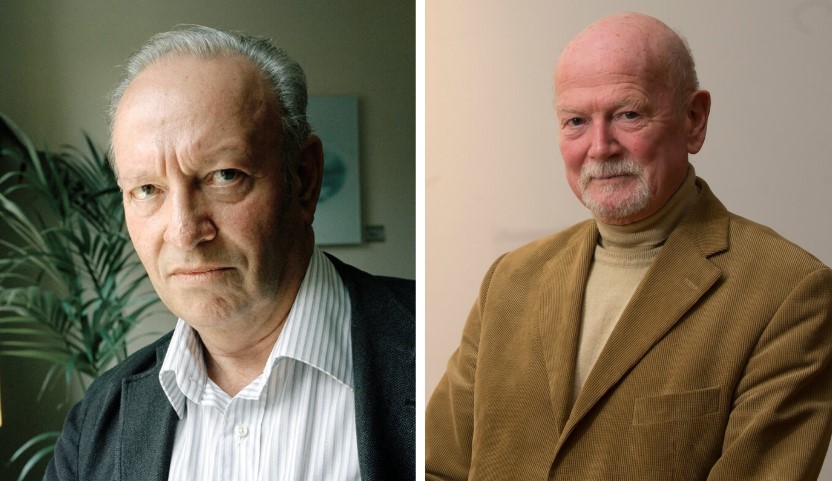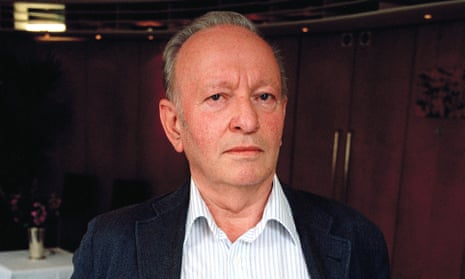Celebrity
Who Is Derek Mahon? All About the Renowned Irish Poet

Derek Mahon was one of Ireland’s most celebrated poets — a master of language, reflection, and emotion. Known for his precise imagery and profound insight, he became a leading voice in Irish literature from the late 20th century onward. Through his poetry, Derek Mahon captured the essence of human experience, the beauty of nature, and the complexities of modern life, securing his place as one of the most influential Irish poets of his generation.
Quick Bio
| Full Name | Derek Mahon |
|---|---|
| Date of Birth | November 23, 1941 |
| Place of Birth | Belfast, Northern Ireland |
| Nationality | Irish |
| Profession | Poet, Translator, Essayist |
| Education | Trinity College Dublin, Sorbonne University, Paris |
| Literary Movement | Modern Irish Poetry |
| Famous Works | The Snow Party, Night-Crossing, Harbour Lights |
| Marital Status | Divorced |
| Children | Two |
| Date of Death | October 1, 2020 |
| Age at Death | 78 years |
| Awards | Irish Times Poetry Now Award, Lannan Literary Award, David Cohen Prize |
Early Life and Background

Derek Mahon was born on November 23, 1941, in Belfast, Northern Ireland, into a working-class Protestant family. His father worked at the Harland and Wolff shipyard, and his mother was a factory worker. Despite his humble beginnings, Derek’s natural curiosity and early love for literature set him apart from his peers.
Growing up during a politically charged time in Northern Ireland, Mahon was acutely aware of the cultural and social divisions around him. These experiences would later shape his poetic sensibility, leading him to explore themes of alienation, displacement, and identity throughout his career. As a young boy, he was drawn to reading, especially the works of Irish poets like W.B. Yeats and Louis MacNeice. This early exposure to poetry gave him both comfort and inspiration, laying the foundation for a remarkable literary journey.
Education and Academic Journey

After completing his primary education in Belfast, Derek Mahon attended the prestigious Royal Belfast Academical Institution, where he developed a deep appreciation for classical literature. His talent for writing and his sharp intellect quickly became evident to his teachers and classmates.
He went on to study French and English at Trinity College Dublin, one of Ireland’s leading universities. During his time there, Mahon immersed himself in the city’s vibrant literary culture, engaging with other aspiring writers and intellectuals. He later continued his studies at the Sorbonne University in Paris, broadening his perspective through exposure to European philosophy and art.
This period of academic growth deeply influenced his literary style. The mixture of Irish cultural identity and continental sophistication became a hallmark of his poetry — a blend of emotional honesty and intellectual precision.
Early Writing Career
Derek Mahon’s early writing career began in the 1960s when he started publishing poems in Irish literary journals. His first collection, Night-Crossing (1968), marked the beginning of his recognition as a distinct poetic voice. His early works dealt with themes of displacement, exile, and the search for meaning in an increasingly fragmented world.
The literary scene in Ireland during the 1960s and 1970s was dynamic and evolving, with poets such as Seamus Heaney and Michael Longley also emerging. Mahon’s writing stood out for its meticulous craftsmanship and restrained emotion. Unlike more overtly political poets, he explored inner landscapes — the private struggles of the soul within the public turbulence of Irish society.
His poems quickly found their way into anthologies, signaling the arrival of a major new talent in Irish poetry.
Rise to Prominence
The 1970s and 1980s were defining decades for Derek Mahon. His second collection, Lives (1972), and his third, The Snow Party (1975), brought him national and international acclaim. The Snow Party, in particular, showcased his ability to fuse personal reflection with universal themes, earning him comparisons to great modernists like T.S. Eliot and Auden.
Mahon’s work often reflected the tensions of Irish life — history, identity, and cultural memory — while maintaining a sense of personal introspection. His poem A Disused Shed in Co. Wexford remains one of the most studied Irish poems of the 20th century, symbolizing both the endurance of art and the quiet resilience of humanity.
Through his poetry, Derek Mahon became a leading voice in articulating the emotional and intellectual challenges of his generation, all while preserving the lyrical beauty of the Irish poetic tradition.
Major Works and Literary Style
Derek Mahon produced a remarkable body of work that includes celebrated collections such as Night-Crossing (1968), The Snow Party (1975), The Hunt by Night (1982), and Harbour Lights (2005).
His style is characterized by precision, elegance, and emotional restraint. Mahon’s poems often explore isolation, memory, and redemption, capturing both personal and collective experiences. He had a gift for transforming ordinary moments into profound reflections on life, time, and the human condition.
Mahon’s writing also showed a fascination with place — from the landscapes of Ireland to the cities of Europe — revealing his lifelong exploration of belonging and exile. His works continue to be celebrated for their balance of intellectual depth and lyrical beauty.
Awards and Achievements
Throughout his career, Derek Mahon received numerous awards and honors that recognized his contribution to literature. Among these were the Irish Times Poetry Now Award, the Lannan Literary Award for Poetry, and the David Cohen Prize for Literature.
His poems were translated into several languages, and he became a prominent figure in international poetry circles. Critics consistently praised his disciplined approach to writing and his ability to combine emotional intensity with technical mastery.
By the late 1990s, Mahon was regarded as one of the greatest Irish poets of his time — an artist whose work spoke to both local and universal experiences.
Age, Height, and Physical Appearance

Derek Mahon was 78 years old at the time of his passing in 2020. While not much is documented about his physical appearance, those who knew him described him as quiet, thoughtful, and reserved. He had an intellectual presence, often seen in photographs with a contemplative gaze that reflected his introspective nature.
Despite his fame, Mahon maintained a humble demeanor, preferring the company of books and ideas over public attention. His calm and reflective personality mirrored the tone of his poetry — gentle yet deeply powerful.
Personal Life and Relationships
In his personal life, Derek Mahon was known for his complexity and introspection. He was married and later divorced, and he had two children. Much like his poems, his relationships reflected his deep sense of emotion and sensitivity.
While Mahon kept most of his personal matters private, glimpses of his experiences often appeared in his work. The themes of loneliness, reconciliation, and loss that run through his poetry are thought to echo his own inner struggles.
He was also part of a close-knit literary community that included figures like Seamus Heaney and Michael Longley, with whom he shared mutual respect and admiration.
Influences and Inspirations
Derek Mahon drew inspiration from a wide range of literary and philosophical sources. Among his influences were W.B. Yeats, Samuel Beckett, Louis MacNeice, and T.S. Eliot. From these writers, he inherited an appreciation for structure, rhythm, and the intersection between the personal and the universal.
Irish history, landscape, and mythology also played major roles in shaping his poetry. He often used the imagery of nature — seas, skies, and seasons — as metaphors for the human condition. His writing reflects both the melancholy of exile and the beauty of belonging, a duality that defines much of modern Irish literature.
Later Life and Legacy
In his later years, Derek Mahon continued to write with undiminished passion. His later collections, such as Harbour Lights and Life on Earth, revealed a mature voice that blended wisdom with serenity.
Even as he faced personal challenges, he remained devoted to poetry, producing some of his most moving work in his final years. His death on October 1, 2020, marked the loss of one of Ireland’s greatest poetic voices, but his influence continues through readers, scholars, and poets around the world.
Mahon’s poetry remains part of Ireland’s cultural identity — studied in schools, recited in literary festivals, and cherished by those who find comfort in his words.
Public Image and Recognition
Throughout his life, Derek Mahon maintained a reputation as a modest yet formidable literary figure. He avoided the spotlight, letting his poetry speak for itself. Critics admired his integrity, his refusal to follow trends, and his unwavering dedication to craft.
Even those unfamiliar with poetry could recognize the emotional truth in his writing — a testament to his universal appeal. Today, he is remembered not only as a poet of Ireland but as a voice for all who seek meaning in a complex world.
Conclusion
Derek Mahon remains one of the defining figures of Irish literature — a poet whose words continue to inspire reflection, empathy, and hope. His ability to blend intellect with emotion, and the local with the universal, set him apart as one of the most distinctive voices of his generation.
Through his art, Derek Mahon captured the fragility and strength of human experience, leaving behind a legacy that ensures his place among the greats of world poetry.
FAQs
Who is Derek Mahon?
Derek Mahon was a renowned Irish poet celebrated for his elegant, reflective, and emotionally powerful poetry that explored identity, memory, and nature.
When and where was Derek Mahon born?
He was born on November 23, 1941, in Belfast, Northern Ireland.
What is Derek Mahon known for?
He is best known for his poetry collections such as The Snow Party, Night-Crossing, and Harbour Lights.
Where did Derek Mahon study?
He studied at Trinity College Dublin and the Sorbonne University in Paris, where he developed his literary voice.
What are some major themes in Derek Mahon’s poetry?
His work often deals with solitude, exile, cultural identity, and the beauty of the natural world.
Did Derek Mahon receive any awards?
Yes, he received numerous honors including the Irish Times Poetry Now Award and the Lannan Literary Award.
Was Derek Mahon married?
He was married and later divorced, and he had two children.
When did Derek Mahon pass away?
He passed away on October 1, 2020, at the age of 78.
How did Derek Mahon influence Irish poetry?
He brought a unique voice to modern Irish poetry, blending traditional craft with intellectual and emotional depth.
Why is Derek Mahon remembered today?
He is remembered as one of Ireland’s greatest poets whose words continue to inspire readers and writers worldwide
More Info And Buzz Visit: Dodge Buzz
-

 Celebrity9 months ago
Celebrity9 months agoWho Is Steve Cena? All About John Cena’s Brother and His Life
-

 Uncategorized9 months ago
Uncategorized9 months agoWho is Janet Gayle? All About Gary Burghoff’s Ex-Wife
-

 Celebrity9 months ago
Celebrity9 months agoWho is Nadia Farmiga? All You Need to Know About Vera Farmiga’s Sister
-

 Celebrity9 months ago
Celebrity9 months agoWho Is Samuel Nowlin Reeves Jr.? The Untold Biography of Keanu Reeves’ Father




















